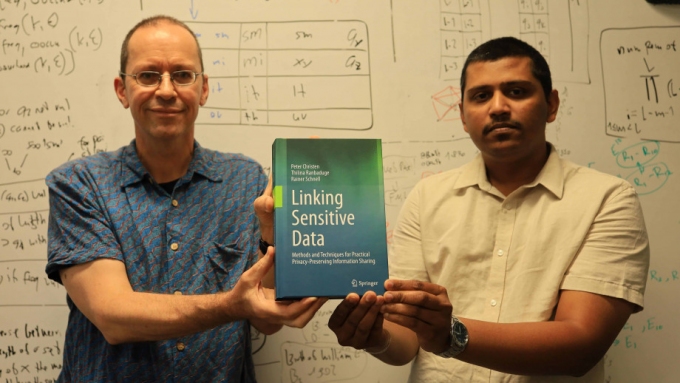A new book from researchers at The Australian National University (ANU) outlines how we can improve the way we share sensitive data and preserve people’s privacy.
Improving the way we share this data could help tackle complex problems in areas such as healthcare and national security, says co-author Peter Christen.
According to Professor Peter Christen, as linking sensitive data from different sources becomes increasingly commonplace, privacy needs to be a top priority.
“For example, linking personal medical records with travel and immigration data has helped countries like Taiwan to manage COVID-19 outbreaks,” Professor Christen said.
“A re-think of the way we link this data could also help prevent a repeat of some of the mistakes made during the Government’s controversial “Robodebt” program.
Professor Christen says privacy is especially important when it comes to personal details, such as names, addresses and dates of birth.
“Here at ANU, we have been developing novel techniques that protect any personally identifying information from being revealed. These techniques use encoding and encryption methods similar to secure Internet banking,” Professor Christen said.
Professor Christen and Dr Thilina Ranbaduge from ANU, along with their colleague Professor Rainer Schnell from the University of Duisburg-Essen in Germany, have published a new book titled Linking Sensitive Data that explores these issues.
“Our book is the first to comprehensively cover this important emerging topic,” Professor Christen said.
“Our hope is this book makes people more aware of the issues and challenges involved when linking sensitive data, as well as highlighting the potential benefits to society.”
Linking Sensitive Data is available through Springer International Publishing.

